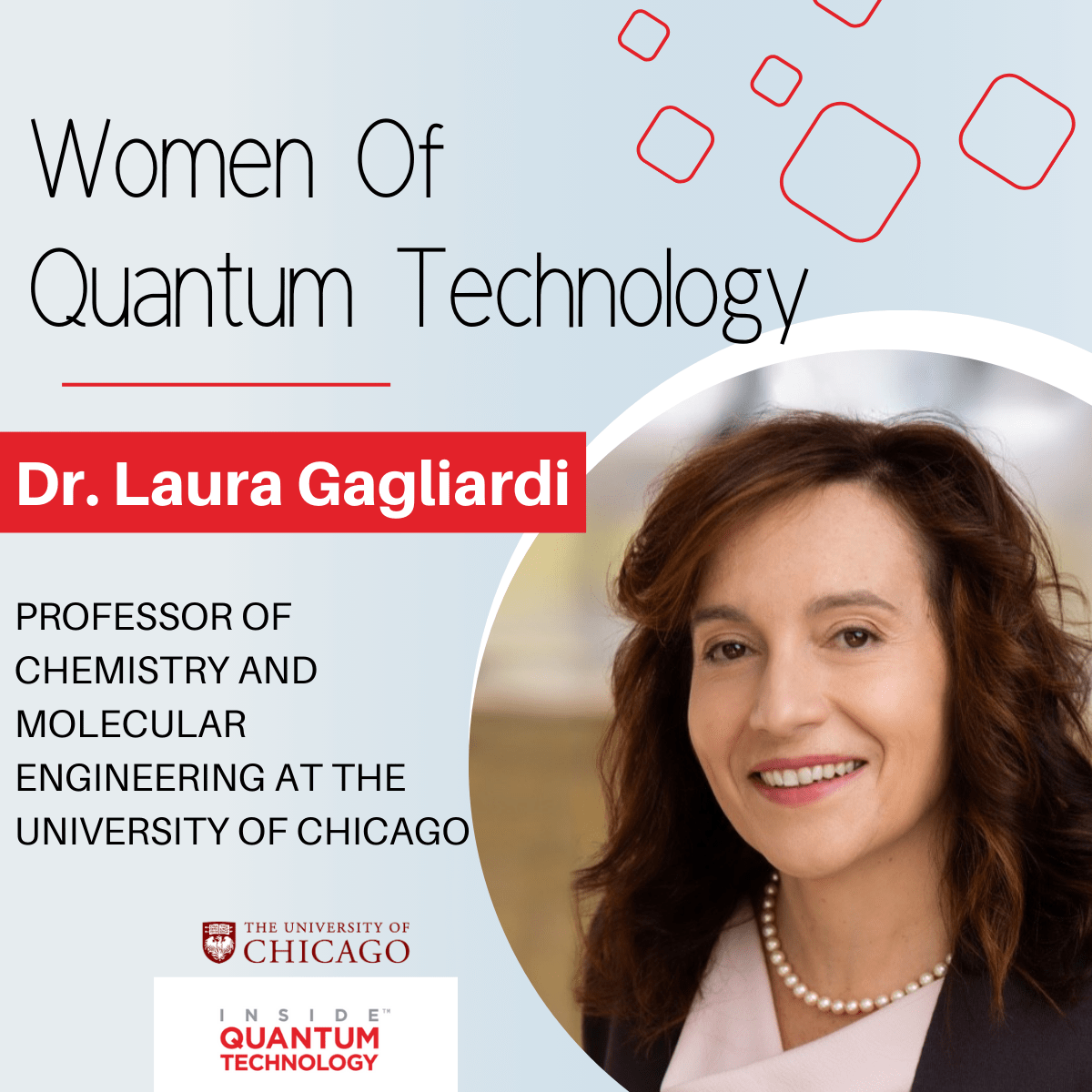Women of Quantum Technology: Dr. Laura Gagliardi of the University of Chicago

Quantum chemistry, a field that delves into the behavior and interactions of molecules and atoms at the quantum level, holds the key to unlocking a deeper understanding of the fundamental nature of our universe. By exploring the intricate world of quantum mechanics, scientists can make groundbreaking discoveries that have far-reaching implications in various scientific disciplines. One of these researchers is Dr. Laura Gagliardi, a chemistry and molecular engineering professor at the University of Chicago. “I’ve always been fascinated by quantum phenomena and trying to understand how matter works at the molecular and atomic level,” Gagliardi explained. “When one explores matter at such a small scale (atoms and molecules have the size of ca. 10-10 meters), quantum laws are needed. In my group, we develop quantum chemistry methodologies, and the idea that they may harness the potential of quantum architecture is both fascinating and promising.”
Gagliardi’s scientific career began in 2002 when she became an assistant professor in chemistry at the University of Palermo. From there, she worked at various other universities until Gagliardi arrived at the University of Chicago in 2020. Throughout her career, she has received various awards, including the Linus Pauling Medal in 2023, the Peter Debye Award in Physical Chemistry of the American Chemical Society in 2020, the Humboldt Research Award, and the Bourke Award of the Royal Society of Chemistry. “I am a chemist, and my passion for understanding the intricacies of how matter functions, particularly at the atomic level, stems from my days as a chemistry student,” she stated. “When I first was exposed to quantum mechanics and realized that the underpinning explanations, at the level of molecules and atoms, are governed by the laws of quantum mechanics, I became really in love with the field. When one explores macroscopic phenomena, they can be re-conducted to the quantum world as well. This passion has continued for the past 25 years, and I feel really privileged that my work is also my hobby and my passion.”
Taking her fascination with quantum chemistry, Gagliardi and her research team at the University of Chicago focus on performing quantum chemistry simulations to study renewable energies. “We focus on exploring the efficient utilization of solar energy resources, on transitioning from a carbon-based economy to a hydrogen-based economy. In another very fascinating project, we computationally model novel materials for water harvesting from the air, with the aim of providing clean water to all of humanity. These materials are like sponges. In the computer simulations, we analyze changes in their chemical composition to make the absorption and release of water more efficient. We also design sponges with a larger internal volume to accommodate more water molecules. These computer simulations are based on the laws of quantum mechanics, in combination also with classical mechanics. We also exploit artificial intelligence to advance these discoveries more efficiently. What is indispensable for the success of our research is to work in collaboration with the experimentalists who test our computational predictions by making our computed species in their laboratory.” Gagliardi has also been predicting chemical systems as potential qubits for the next generation of quantum computers. “This research is at its inception, but the potential of this field is very exciting”
As a University of Chicago professor and a leader in the quantum chemistry field, Gagliardi is deeply committed to fostering inclusivity in the scientific domain. “Gender representation in STEM fields, particularly in positions of leadership, continues to face disparities” she stated. “Underrepresentation of women in STEM should be addressed by ensuring that women are not isolated within their academic and professional journeys. It is important to create supportive environments where women can thrive as part of collaborative teams.” To avoid isolation, Dr. Gagliardi encourages the establishment of networks consisting of role models and mentors. “Such networks can provide valuable guidance and inspiration for young women seeking careers in science and engineering. The presence of women in leadership positions serves as an empowering force, showing the younger generation that their aspirations are attainable and worthy.”
Kenna Hughes-Castleberry is a staff writer at Inside Quantum Technology and the Science Communicator at JILA (a partnership between the University of Colorado Boulder and NIST). Her writing beats include deep tech, quantum computing, and AI. Her work has been featured in Scientific American, Discover Magazine, Ars Technica, and more.





















